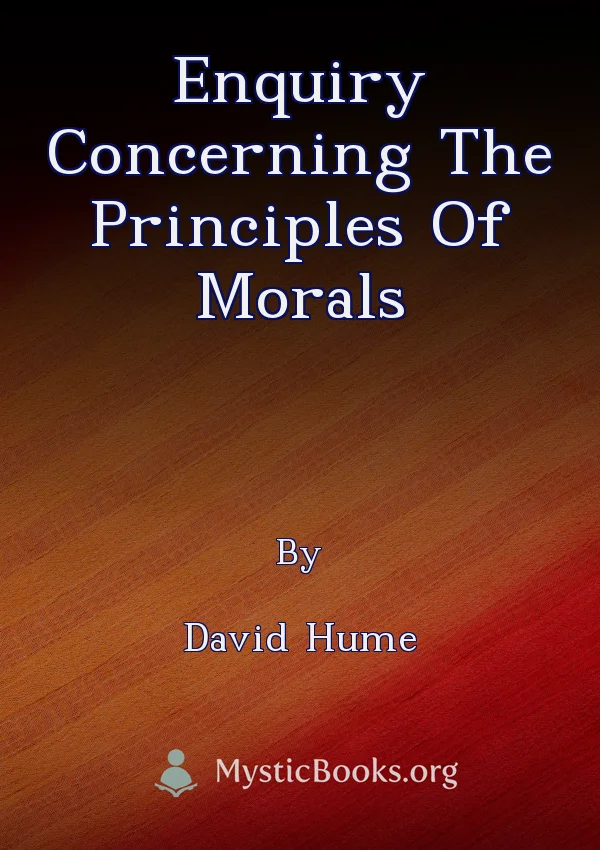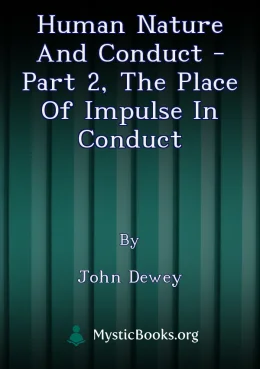
Enquiry Concerning the Principles of Morals
by David Hume
'Enquiry Concerning the Principles of Morals' Summary
Hume's *Enquiry* begins by questioning the traditional view that morality is grounded in reason. He contends that reason alone cannot provide us with moral judgments, as it can only tell us what is, not what ought to be. Instead, Hume asserts that moral judgments arise from our feelings or sentiments. He proposes that our moral approval or disapproval stems from a sense of sympathy, which allows us to share in the feelings of others. This capacity for empathy, he argues, leads us to approve of actions that promote the happiness of others and disapprove of actions that cause suffering. Further, Hume explores the role of utility in shaping moral rules. He maintains that social utility, the promotion of the common good, serves as a crucial factor in determining what is morally right. He argues that moral rules that are conducive to social harmony and well-being are likely to be adopted and upheld. Throughout the *Enquiry*, Hume examines various moral concepts such as justice, benevolence, and virtue. He analyzes the different factors that influence our moral judgments, including our natural inclinations, our social experiences, and our understanding of the consequences of our actions. Ultimately, Hume seeks to provide a more grounded and empirically informed account of morality, one that recognizes the crucial role of sentiment and utility in our moral lives.Book Details
Language
EnglishOriginal Language
Published In
Genre/Category
Tags/Keywords
Authors

David Hume
Scotland
David Hume was a Scottish Enlightenment philosopher, historian, economist, librarian and essayist, who is best known today for his highly influential system of philosophical empiricism, scepticism, an...
Books by David HumeDownload eBooks
Listen/Download Audiobook
- Select Speed
Related books

Magic Mountain (Volume Two) by Thomas Mann
Thomas Mann's Magic Mountain is a complex and multi-layered novel that explores the themes of society, decay, corruption, sickness, and death. Set in...

Self and Self-Management: Essays about Existing by Arnold Bennett
Bennett's essays always provide food for thought and bring a wry smile to the lips. Human nature, it appears, changes little over the ages, and Bennet...

Critón o el deber by Plato (Πλάτων)
En "Critón o el deber", Platón presenta un diálogo entre Sócrates y su amigo Critón, quien le ofrece la posibilidad de escapar de la prisión antes de...

Human Nature and Conduct - Part 2, The Place of Impulse In Conduct by John Dewey
John Dewey's 'Human Nature and Conduct' delves into the complexities of human behavior, emphasizing the interplay between innate impulses and ingraine...

Ἀπολογία Σωκράτους (The Apology of Socrates in Ancient Greek) by Plato (Πλάτων)
The Apology of Socrates, written by Plato, recounts the defense speech given by the philosopher Socrates before the Athenian court. Facing accusations...

Philosophical Essays by Bertrand Russell
Six out of seven essays appearing here were reprinted from other publications; indeed, this 1910 collection went out of print, so that two of the essa...

Aviation Instructor's Handbook FAA-H-8083-9A by Federal Aviation Administration
The 'Aviation Instructor's Handbook' is a comprehensive resource designed to provide guidance for individuals seeking to become certified flight instr...

A Confession by Leo Tolstoy
The story begins with the Eastern fable of the dragon in the well. A man is chased by a beast into a well, at the bottom of which is a dragon. The man...

Empire of Business by Andrew Carnegie
In "Empire of Business", renowned industrialist and philanthropist Andrew Carnegie shares his insights on the economic landscape of America at the tur...

Universal Declaration of Human Rights, Volume 01 by United Nations
The Universal Declaration of Human Rights was ratified in 1948 by the United Nations General Assembly. It defines the fundamental rights of individual...
Reviews for Enquiry Concerning the Principles of Morals
No reviews posted or approved, yet...